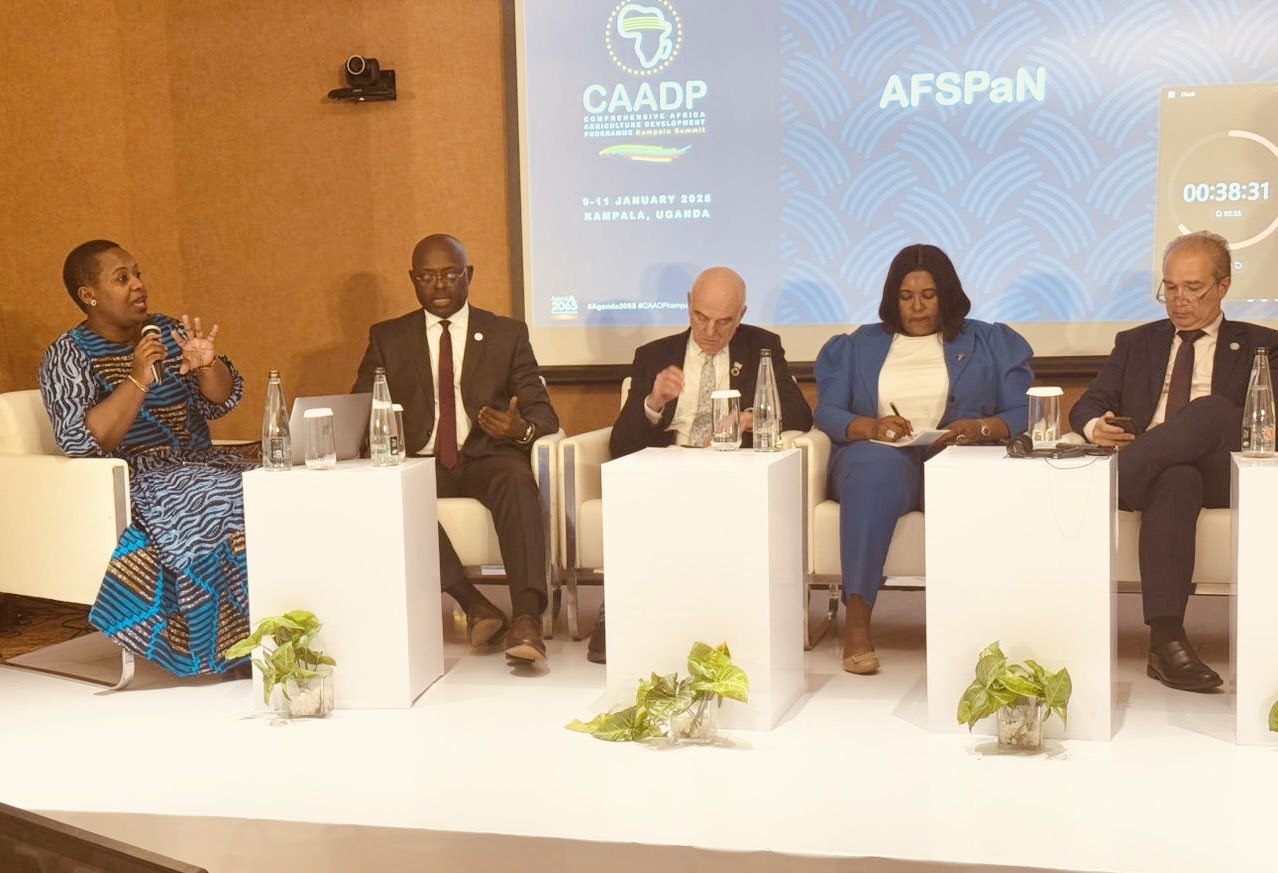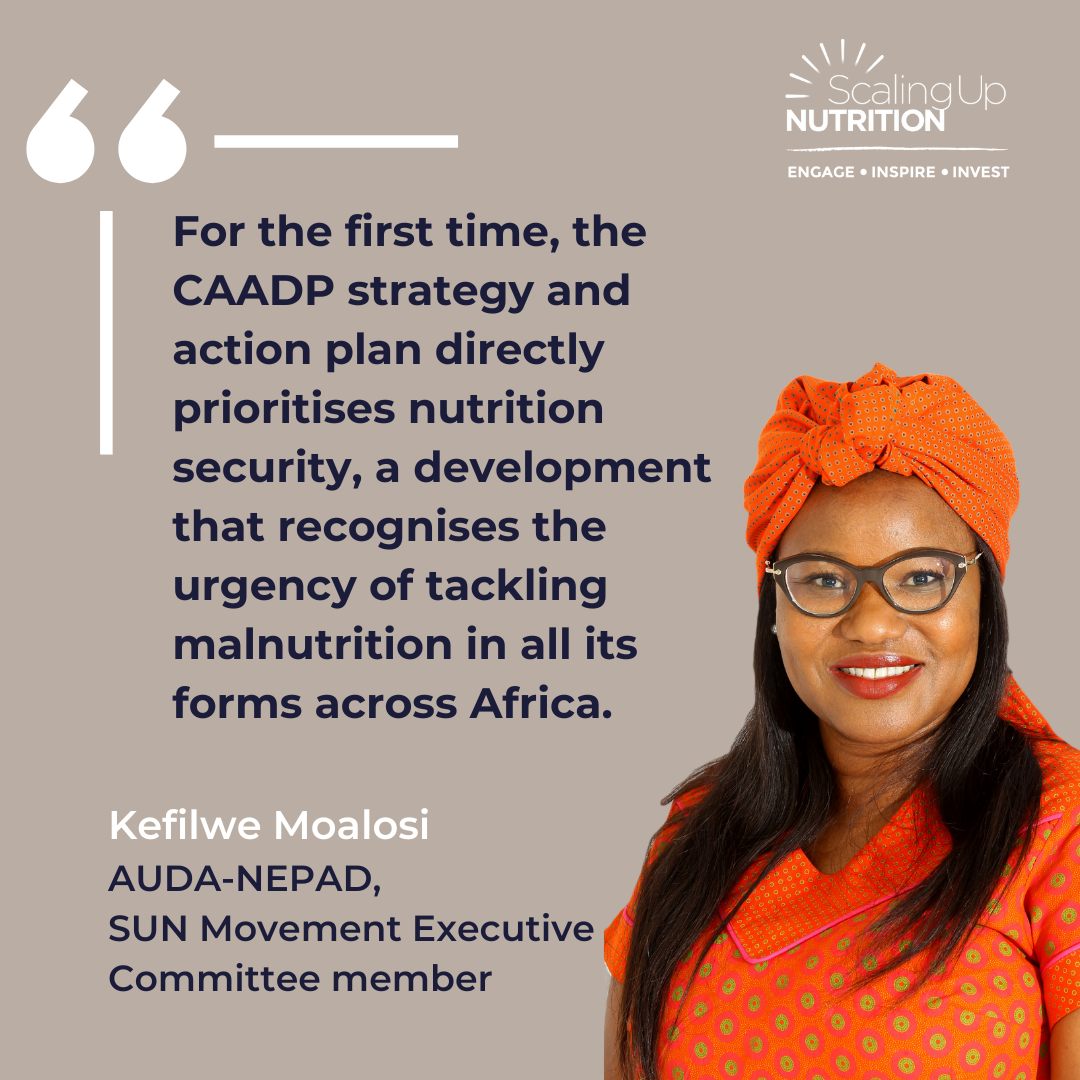Kampala Declaration marks turning point: Nutrition now core to Africa’s agricultural development agenda
The African Union has adopted a landmark agricultural strategy that establishes nutrition as a core strategic objective within the continent's food systems framework. At the Extraordinary Summit held in Kampala, Uganda, in January 2025, Heads of State and Government endorsed the Kampala Declaration and the new Comprehensive African Agricultural Development Programme (CAADP) Strategy and Action Plan (2026-2035), signaling a strategic pivot toward nutrition-sensitive agriculture.
For the first time, CAADP explicitly prioritizes nutrition security, reflecting a comprehensive approach to tackle Africa’s interlinked challenges of food insecurity, malnutrition, and agricultural development. The shift is timely: more than one billion people in Africa struggle to afford a healthy diet, with food systems strained by climate change, conflict, and rapid population growth.
The SUN Movement has been working closely with the African Union and partners to develop a methodology that is being used to create domestic investment targets for nutrition. By leveraging its networks across governments, civil society, businesses, and academia, SUN aims to drive nutrition-specific and nutrition-sensitive programmes aligned with CAADP initiatives, ensuring a more efficient use of resources for tangible outcomes.
SUN Lead Group members H.E. Ambassador Josefa Sacko and Dr. David Nabarro, alongside Executive Committee members Hon. Neema Lugangira and Kefilwe Roba Moalosi, underscored the transformative potential of this development during strategic dialogues and media engagements at the summit.
"Africa's agricultural development, including food and nutrition security, is a whole-of-society endeavour, and the post-Malabo CAADP strategy is based on all actors throughout the agrifood system coming together to play their part," said Hon. Neema Lugangira, MP, Tanzania.
This renewed commitment to nutrition through the CAADP framework represents a significant step forward in Africa's journey toward sustainable food systems and improved nutrition outcomes. The strategy acknowledges that investing in nutrition is crucial for preventing stunting, wasting, and obesity, while enhancing productivity and preserving long-term human capital.
“The post-Malabo strategy takes a holistic approach, recognising that increases in productivity alone are not enough to tackle malnutrition. Instead, member states acknowledge the need to transform every stage of the food system, from the crops that farmers grow to the way they are processed and the advice and guidelines given to consumers,” said Kefilwe Moalosi, Senior Nutrition and Food Safety Programme Officer, African Union Development Agency, during the summit.
malnutrition. Instead, member states acknowledge the need to transform every stage of the food system, from the crops that farmers grow to the way they are processed and the advice and guidelines given to consumers,” said Kefilwe Moalosi, Senior Nutrition and Food Safety Programme Officer, African Union Development Agency, during the summit.
“Nutrition is not simply an outcome of food systems but a key determining factor. Africa’s agricultural development must follow a trajectory that sustainably meets the nutritional needs of all demographics, otherwise we are farming for farming’s sake only.”
As Africa moves forward with this ambitious agenda, the SUN Movement will support countries in developing cost-effective multisectoral nutrition strategies, strengthening food and nutrition governance structures, and identifying innovative financing mechanisms to achieve these vital objectives.